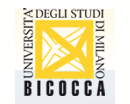Privacy Policy
Privacy Information Policy in accordance with Arts. 13-14 of GDPR 679/2016 EU
I - INFORMATION ON PERSONAL DATA PROTECTION
DIRITTO DELLE NUOVE TECNOLOGIE® - STUDI GIURIDICI PER L’INNOVAZIONE® – with reference to the processing of any personal data collected directly or through this website – protects data confidentiality and the exercising of related rights.
To this end it ensures - in accordance with Art. 5 of EU General Data Protection Regulation EU (hereinafter “GDPR”) and italian updated Codice per la Protezione dei Dati Personali - the general principles of:
- Correctness
- Lawfulness
- Transparency
- Purpose
- Suitability, pertinence and limitation
- Exactness and updating
This website does not contain requests for visitors to supply personal data, nor does it contain concealed technological tools capable of obtaining the visitor’s personal data.
The only source of personal data collection is the emails sent to DIRITTO DELLE NUOVE TECNOLOGIE® - STUDI GIURIDICI PER L’INNOVAZIONE® by users of the website, or the automatic collection by technical cookies – better defined below – to optimise navigation.
For this reason, and to inform site users of the rules adopted in relation to personal data processing – in conformity with Arts. 13 and 14 of the GDPR 679/2016 EU – DIRITTO DELLE NUOVE TECNOLOGIE® - STUDI GIURIDICI PER L’INNOVAZIONE® has prepared this PRIVACY INFORMATION POLICY.
The DATA CONTROLLER shall inform DATA SUBJECT, in accordance with the GDPR, that:
- non-sensitive personal data are being processed
- sent voluntarily by the subject
-
on the legal basis of conclusive consent consisting of sending an email or other means of communication used by the subject
-
for purposes strictly connected with the subject’s requests
- for the necessary duration correlated to the subject’s requests.
The abovementioned personal data are not communicated to third parties or disseminated without the subject’s prior written consent.
The DATA CONTROLLER guarantees security of processing and the subjects’ right to access their own data in accordance with Art. 15 of the GDPR.
The selfsame furthermore ensures and informs the subject of other rights provided for by the GDPR, more precisely:
- Right to correction
- Right to deletion
- Right to limitation
- Right to portability
- Right to opposition
- Right to file complaints to the Data Protection Authority
The DATA SUBJECT is further informed that:
- he may revoke consent, where provided for, at any moment: revocation of consent does not prejudice the lawfulness of data processing based on consent granted prior to revocation;
- processing will be effected with both manual and/or IT or telematic instruments with organization logics and processing strictly correlated with the purposes themselves and in any case in such a way as to ensure the security, intactness and confidentiality of the said data in respect of the organisational, physical and logical measures envisaged by the provisions in force;
- consent for subjects under 16 years of age must be given directly by or authorised by the person with parental responsibility, subject to identification of the latter.
DATA CONTROLLER: DIRITTO DELLE NUOVE TECNOLOGIE® - STUDI GIURIDICI PER L’INNOVAZIONE®.
II - INFORMATION ON RULES FOR USING COOKIES
This informative note is supplied in implementation of the Italian Data Protection Authority Provision N° 229 of 8th May 2014.
To this end we supply detailed information on the use of cookies and similar technologies, and on the rules of use and management.
First and foremost it is pointed out that this website uses technical cookies – and similar technologies – solely to ensure correct functioning of the procedures and to improve user experience of the online applications.
II.1 Definitions:
Cookies are brief fragments of text (letters and/or numbers) which permit the web server to memorise on the client (the browser) information to be reused in the course of the same visit to the site (session cookies) or subsequently, even at a distance of days (persistent cookies). Cookies are memorised on the basis of user preferences by the individual browser on the specific device being used (computer, tablet, smartphone).
Similar technologies, such as for example web beacons, transparent GIF and all the forms of local storage introduced with HTML5, may be used to gather information about the user’s behaviour and utilisation of the services.
Below we shall make reference to cookies and all similar technologies simply by using the catchall term “cookies”.
II.2. Types of cookie
On the basis of the features and utilisation of cookies we may distinguish several categories:
Technical cookies: These are indispensable for correct site functioning and are used to manage login and access to the site’s reserved functions. Cookie duration is strictly limited to the work session (they are deleted when the browser is closed down). Their deactivation compromises the utilisation of services accessible from login. The public part of the site remains normally utilisable.
This site uses session cookies of this type.
Analysis and performance cookies: These cookies are used to anonymously collect and analyse traffic and use of the site. These cookies permit, for example, even without identifying the user, detection of whether the same user returns to connect at different times. They also allow monitoring of the system and improvement of its performance and usability. Deactivation of these cookies can be carried out without any loss of functionality This site does not use third party cookies.
Profiling cookies: These are permanent cookies used to identify (anonymously and otherwise) user preferences and improve their navigation experience.
This site does not use cookies of this type.
DIRITTO DELLE NUOVE TECNOLOGIE® - STUDI GIURIDICI PER L’INNOVAZIONE® and this website do not use cookies for gathering user data for distribution to third parties for business or marketing purposes.
II.3. Duration of cookies
Certain cookies (session cookies) remain active only until the browser is closed or until the logout command is given. Others “survive” closure of the browser and are available also during the user’s subsequent visits.
These cookies are known as persistent, and their duration is fixed by the server at the moment of their creation. In some cases an expiry time is set, in others the duration is unlimited.
This site uses persistent cookies to memorise information solely for technical purposes.
II.4. Management of cookies
Users can decide whether or not to accept cookies by using the settings on their own browser.
Total or partial disabling of technical cookies can compromise utilisation of functionalities of the site reserved to registered users. Contrarily, the public contents remain available even if cookies are completely disabled.
Disabling of “third party” cookies does not prejudice navigation in any way.
The setting can be defined specifically for different web sites and applications. Moreover, the best browsers allow you to define different settings for “proprietary” and “third party” cookies.
The visitor is free not to accept these cookies by programming the browser accordingly in such a way as to refuse them.
Excluding cookies might however, in some cases, preclude or slow down access to certain pages of the site.
***
Please address all Policy Privacy questions and comments to:

Milan, May 25, 2018





